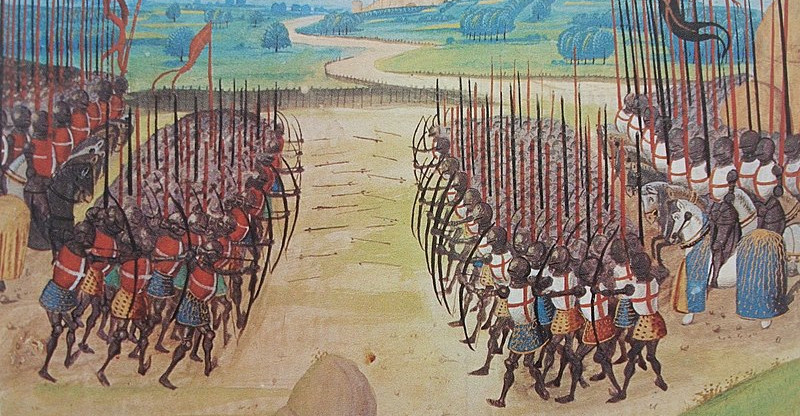
English poet Winthrop Mackworth Praed was renowned for his charades — this one, published in the 1830s, has never been solved:
Sir Hilary charged at Agincourt,–
Sooth, ’twas an awful day!
And though in that old age of sport
The rufflers of the camp and court
Had little time to pray,
’Tis said Sir Hilary mutter’d there
Two syllables by way of prayer.
My first to all the brave and proud
Who see to-morrow’s sun:
My next, with her cold and quiet cloud,
To those who find their dewy shroud
Before to-day’s be done:
And both together to all blue eyes,
That weep when a warrior nobly dies.
“The best answer I have been able to find is GOOD NIGHT,” wrote Henry Dudeney in 1919. “The two syllables are by way of wish or prayer. We wish nothing but good to the victorious, we leave those have fallen to their ‘dewy shroud’ at night, while to the sorrowful bereaved we cannot do less than wish them a good night.”
But Praed himself left no solution.
